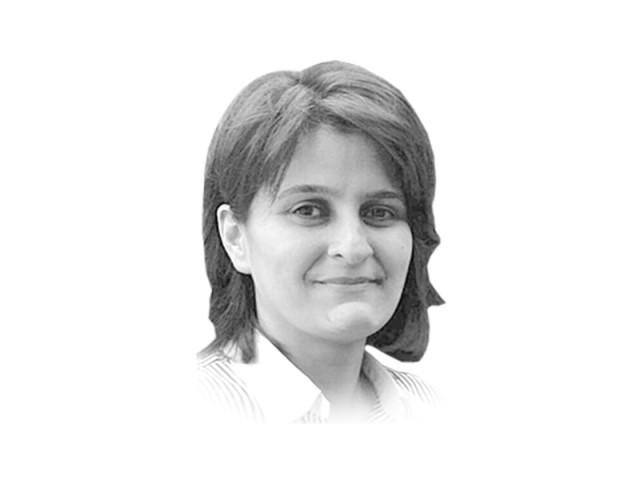Living with muscular dystrophy
In Pakistan, rehabilitation centres and proper diagnosis, cure and treatments are not available.

The writer is an independent journalist, who graduated from the University of Iowa. She is now studying Political Science at University of Texas, USA
@SaherShaid It's useless to seek help from knavish politicians, wise to contact people in medicine, they serve humanity not politicians!
— Prof. Zee (@LZ_Arif) January 6, 2014
With regard to this rare physical disability, I started contacting medical experts for their opinion on muscular dystrophy — a genetic disease in which muscle fibers are unusually susceptible to damage. These damaged muscles become progressively weaker. Since I worked at a non-profit health think tank at the University of Iowa, in the United States, I got a chance to meet health experts in various fields of scientific research. After getting details from the mother of these children, I started calling these experts and brought this case to their notice. I learnt from one of them that University of Iowa hospital is one of the best in the country when it came to handling muscular dystrophy cases. I shared this good news with this courageous mother, who is fighting to secure the future of her three beautiful young children.
My only interaction with this family occurred on Twitter. Sitting 9,000 miles from Pakistan, this inspiring mother inspired me, with her plea seeking help for her children on Twitter catching my attention. Saher Zubair, 42, a plucky mother of three beautiful, amazing children — Ahmed 13, Nida 16, and Eman eight — lives in a metropolitan city of Pakistan. For the last couple of years, when her children started developing this rare disability, Saher struggled to find treatment for her children. This struggle led her to create a Twitter profile and a website to seek help that may come from anywhere in the world.
Sahar is not the only parent who is going through such challenges in Pakistan. There are hundreds of such examples where people cannot find even the most basic information on such disorders and disabilities. Due to missing data and a lack of research, it’s hard to predict the number of people living with physical and mental disabilities in Pakistan.
Telling her story, Saher explained via email to me that no school accepted her kids due to their physical weakness, so she teaches them at home. Both children continued school until class two, and later, the school administration refused to provide any special care for them. While other schools used the excuse that accepting such children could create a bad impact on other children and their parents. So, Saher’s children became isolated because society has no place for people with special needs.
In Pakistan, rehabilitation centres and proper diagnosis, cure and treatments are not available. Saher requested various authorities for assistance for proper diagnosis, but has not received any positive response so far. “They were perfectly healthy and bright kids until they got this muscular problem, making their paralysis worse by the day,” she explained in her email. She helps her kids in routine activities such as feeding, sleeping and washroom activities. She is still grappling on to hope and continues to search for a proper diagnosis.
Saher also narrated her experiences about the challenges she had to face at several hospitals in Pakistan, including the top-notch ones, with expertise in neurology and orthopedics. The majority of them did not have any experience or training to deal with this kind of disorder.
“One senior doctor shocked my family when he said to my husband to remarry another woman in order to have normal kids. In short, going to doctors has become a nightmare for me and my children,” she added. She also approached various physiotherapy centres, but private rehabilitation centres have proved to be very costly.
Saher mentioned that a few doctors started steroid treatment, which created even worse effects of palpitations, cardiac arrest type situations and serious weight gain.
The most inspiring thing about these children is that despite being aware of their disabilities, these three amazing kids are optimistic and positive towards life. They still believe that a miracle would happen and they all will be able to live a normal life again, so that society does not look down upon them and people do not judge their intellect on the basis of their disability.
Published in The Express Tribune, January 23rd, 2014.
Like Opinion & Editorial on Facebook, follow @ETOpEd on Twitter to receive all updates on all our daily pieces.















COMMENTS
Comments are moderated and generally will be posted if they are on-topic and not abusive.
For more information, please see our Comments FAQ